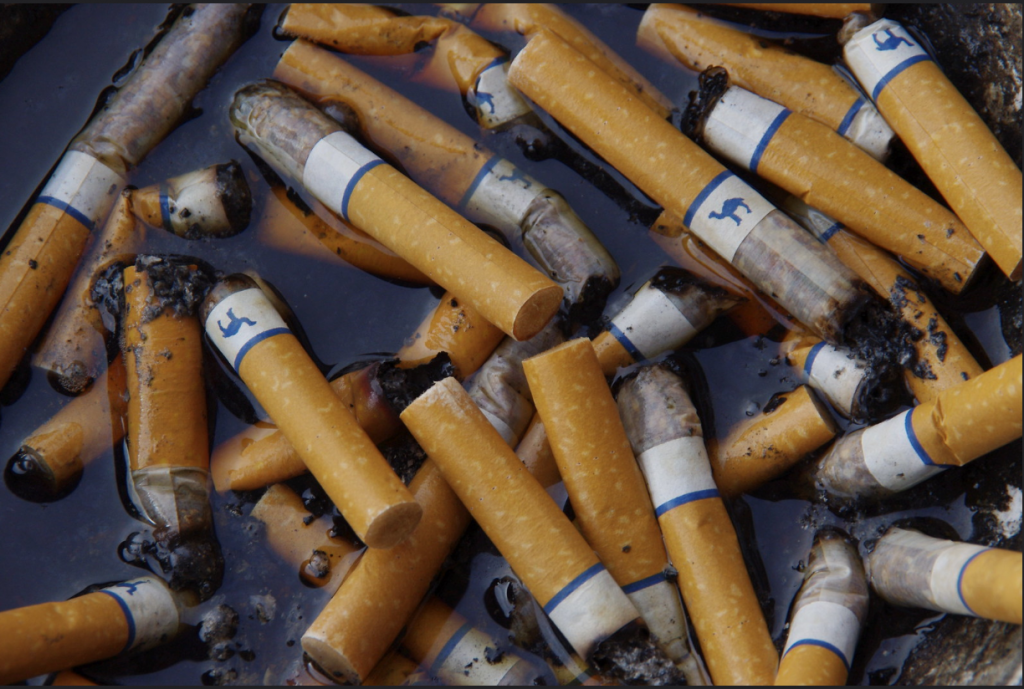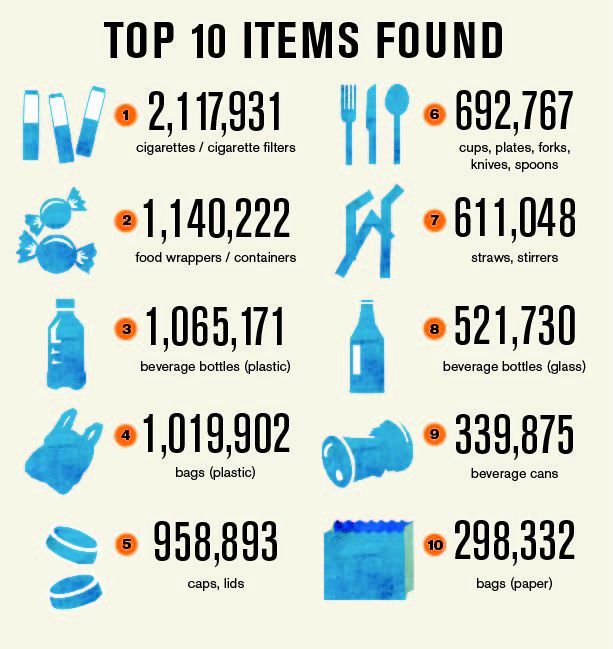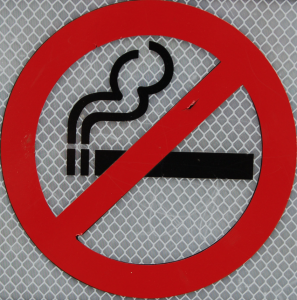
Cigarette Butts (Source: Flickr)
The world has a very big butt problem.
No, not the two rounded portions of flesh, located on the backside of your body.
We’re talking cigarette butts!
The number one source of plastic waste in the ocean comes from cigarettes, as it is one of the most littered items on the planet, more than plastic bags, bottles and straws. Roughly 6.5 trillion cigarettes are purchased around the world each year and only an estimated one third of these cigarettes are properly disposed of into the trash, as the rest of them find their way into the marine environment through storm drains, streams and rivers. Although cigarettes mostly disintegrate into ash when they are smoked, the remaining portion that is discarded, commonly known as cigarette butts or filters, is shown to significantly threaten marine life.

List of Items Found in Ocean (Source: Ocean Conservancy)
Consequences of Cigarette Butt Waste
An obvious consequence of these plastic cigarette butts drifting around in the ocean is that they can become lodged in the throats or intestinal tracts of various marine animals such as sea turtles, which can cause improper digestion or in the worst case scenario, clog the feeding or respiratory systems of the animals and result in death.
Moreover, one cigarette butt is composed of thousands of toxic materials such as lead, arsenic and nicotine, which can leach into the water to form a deadly solution. Researchers conducted a study to test the impact of these cigarette butts by placing a single cigarette butt into a litre of fish-containing water and found that approximately half of the fish in the water died in a short time span of just four days, showing just how lethal these filters can be.
More concerning however, is that these filters are photodegradable, which means that they can break down into smaller pieces of plastics called microplastics when exposed to sunlight. These microplastics essentially become small transporters of toxic chemicals as they can be mistaken for food and ingested by a wide variety of marine organisms, ranging from microscopic zooplankton to large sea birds.
Solutions – What Can be Done?

No Smoking Sign (Source: Flickr)
The most obvious solution is to ban cigarettes all together, however this a difficult approach as it requires further research on various policy options and the potential impacts the ban could have on the global economy.
Certain cities such as Vancouver are in the midst of implementing laws that enforce the usage of environmentally-friendly alternatives for single-use items such as plastic bags and straws. For example, popular companies such as Starbucks are beginning to distribute paper straws to their customers, in order to reduce unnecessary plastic waste. Similarly, laws could be implemented to enforce cigarette manufacturers to develop eco-friendly cigarette filters to replace the existing plastic ones.
Whatever the approach, it should be a priority to reduce cigarette waste around the world, as millions of animals die each year due to plastic waste in the ocean.
Written by Justin Kim
